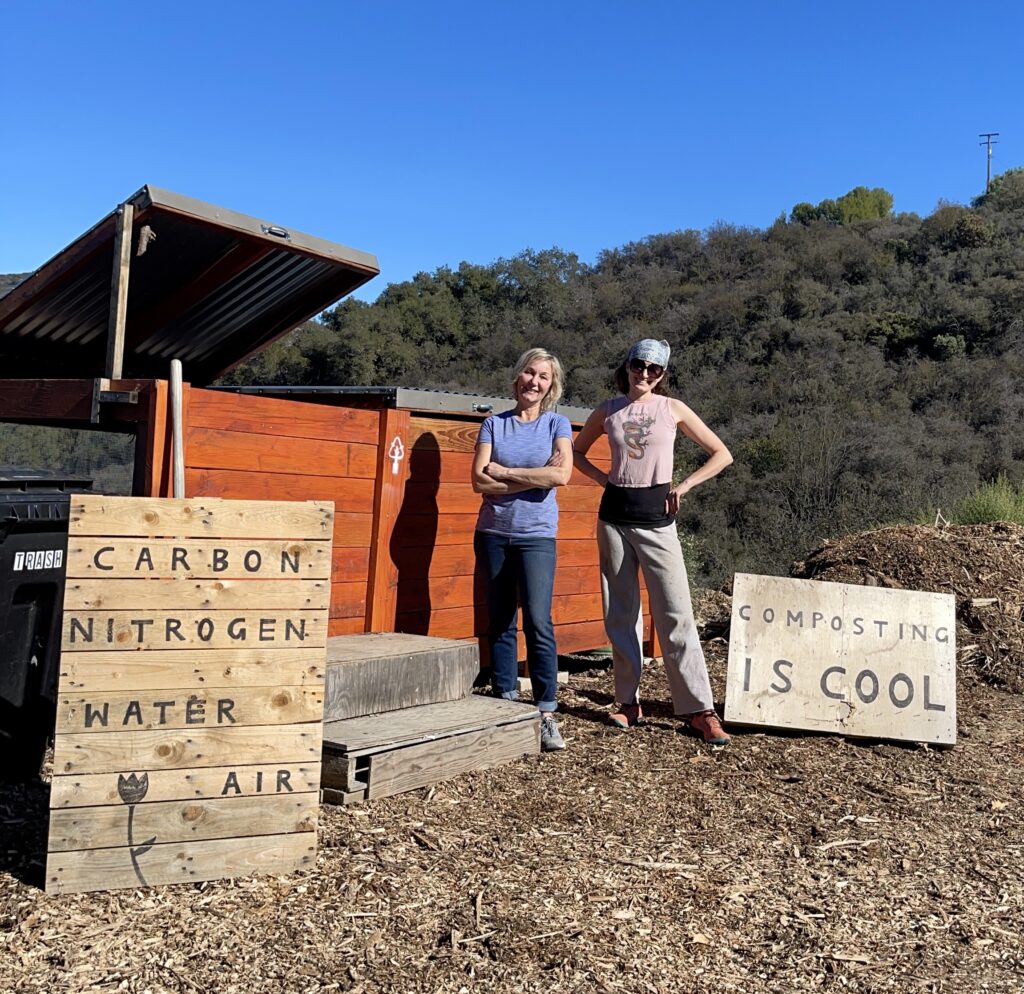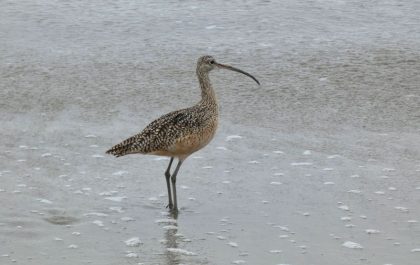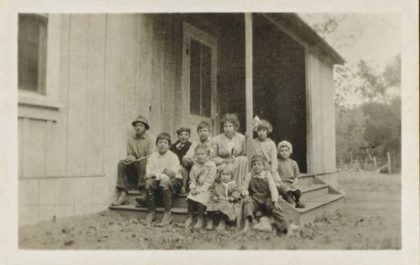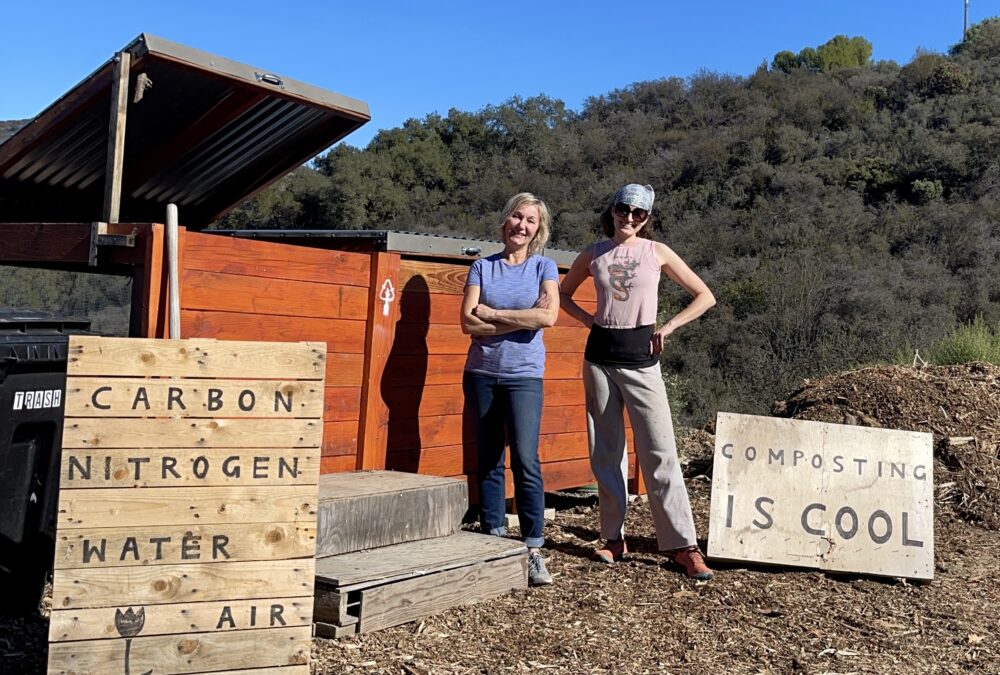
Over the last two years, LA County’s Sustainability Plan has been moving into full implementation. It is a comprehensive plan, expanding equity throughout LA and taking bold steps to mitigate climate warming. In fact, every time I speak to Andy Shrader, Councilman Paul Koretz’s Director of Environmental Affairs, and a local Topangan, he reminds me that what we do in Los Angeles, is viewed around the world as a model for civic sustainability. Countries look to us to implement legislation and changes that they then replicate; Expanding tree canopy throughout the city, shifting to 100% renewable energy, water reclamation projects, and creating bike infrastructure are just a few of the massive overhauls in LA’s 30-year plan. The viability of LA’s sustainability vision is supported by our progressive state’s climate legislation in the passing of bills like, AB 1383, in which California has committed to state-wide organics recycling, namely food recovery and composting. If you’ve been reading this Changemaker column over the last few months, we’ve been highlighting composting as a climate solution which supports our Santa Monica Mountain Forest by cooling the climate, regenerating the soil and bringing our community together through sustainable practices. Landfills are California’s third largest emitter of methane, a powerful greenhouse warming gas. Additionally, air pollutants like PM 2.5 contribute to health conditions like asthma. So, there is no time to waste if California is to reach its greenhouse gas emissions goals of reduction by 75% by 2030.
2022 is the time that has come to make real systematic change throughout Los Angeles, California and especially locally in Topanga. Cal Recycle website’s touts the most updated mandate regarding the new compost mandate; “Starting in 2022, all jurisdictions will to need to provide organic waste collection services to all residents and businesses and recycle these organic materials using recycling facilities such as: Anaerobic digestion facilities that create biofuel and electricity and composting facilities that make soil amendments.”
TNT wants to help you make these changes easily. So, we’ve laid out the following guide to composting in Topanga.
TOPANGA GUIDE TO COMPOSTING – PLEASE START TODAY!
Your Home Green Bin
All residents in 90290 are authorized by Waste Management to add food scraps to your green yard waste bin. In speaking to a representative at Waste Management, here are a few tips they recommend on what to put in or leave out:
WHAT TO ADD: all food, veggie, fruit, pits, seeds, meat, bones, seafood shells, nuts, coffee and tea and filters, lint from drier, cut flowers, eggshells, peels, green and brown yard clippings and leaf litter.
DON’T ADD: bags of any kind, compostable utensils, plastic, produce stickers, twist ties.
TIPS: meat and dairy may make your bin odorous and attract vermin. Make sure your receptacle lids are closed tightly. Another tip is to keep your food scraps in freezer until the day your waste is picked up. This prevents odors and fruit flies.
Community Compost Sites
Topanga Community Club offers veggie food scraps composting for TCC members. Its free to drop your food veggie-only scraps M-F 10-5pm, TCC schedule permitting. Sign up at: TopangaCommunityCenter.org. Thank you, Bonnie Morgan and Kelly Rockwell, for making this possible. Full Circle Compost is maintaining the TCC system throughout 2022. For information contact: [email protected]
Community Drop Sites: Full Circle Compost will be opening 3 community drop sites in the next few months. Registration will be required. Email us for information: [email protected]
Commercial Composting:
Pine Tree Circle and Topanga Courtyard have set up compost programs for businesses at their respective centers. Pine Tree Circle has just harvested its first load of composted soil after 9 months of diverting tons of food scraps from its restaurants. Thank you, Nate Deneshgar, for making Pine Tree a green center, and Hannah Wear for underwriting the bin at Topanga Courtyard center. If your business in Topanga would like to establish a compost system, please reach out to us. [email protected]
Back Yard Composting
Backyard composting is the easiest as there is no transport needed. Establish an airtight collection container in your kitchen and walk it out to your compost bin every other day. Your compost should consist of approximately 50% food/plant material and 50% browns (leaves, hay, sawdust). You can add a small amount of horse manure and coffee as high nitrogen sources to kick up the heat in your compost. The process of decomposition generally takes between 3-9 months depending on how much you aerate it. Keep it moist, stir it every week- if compost dries out it stops working. Need a compost bin? Call Full Circle Compost. We install and train you to compost. [email protected], 310-871-0061. Follow us on Instagram for compost tips and videos @fccompost. Information Resources Public Works, Cal Recycle, Fcccompost.org





